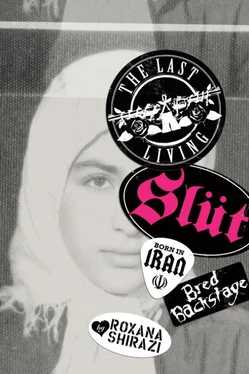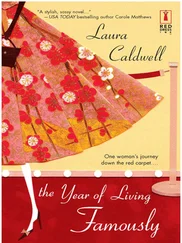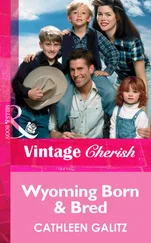After collecting our fluffy white towels from the clothesline, my grandmother would fold the family’s freshly washed underwear into a cloth sack. I would take my baby doll, get her dressed, wrap her up, and then we’d walk through our alley and down the hill. When the wailing of azan (prayer) from the mosque opened up, my heart would burst quietly with peaceful happiness. At that moment, as my grandmother held my hand in the Persian dusk, I felt a divine euphoria.
The bathhouse sat crumbling like a giant cookie. Past lives and weary bones still lingered in its doorway. Inside, distant voices and muffled splashes echoed in its hollow belly and ricocheted against the high glass-domed ceiling. There were private cubicles with a shower and bath, and a communal area where women washed together. Once the clanky metal door of the changing room banged shut, we peeled every layer. With towels wrapped around us, we were ready to dish the dirt.
The bathing hall always hummed. Child brides scrubbed until they squeaked. Skinny, old, long-haired, fat, young, gold-toothed, saggy, hennaed, jeweled, haughty—giggling women of every variety—waddled, lounged, and shared secrets. Rolls of flesh gorged on lather, the foam wallowing in the water.
As I grudgingly let the towel slip from my skin, my grandmother would spot neighbors and relatives, and soon the chatter would start. It seemed to last forever, the steam melting into my pores, the street dirt oozing out. If I opted for a private cubicle, I could open the door and shout “Pepsi!” or “Canada Dry!” and within minutes the ice-cold drink would arrive. It was heaven. Hours later, my grandmother and I would emerge scrubbed red-raw like beetroot, our gleaming faces peeking out from snug, plump head covers to protect us from catching a cold.
One evening while I was walking home from the bathhouse, the savak raided the house at the end of our street. It was the grandest house on the block, with blue iron gates and sinuous trees that veiled the decadence inside. It was my friend Parya’s house. She was my age, and very tall and slender with doll hair swinging down her back and cat-green eyes. Unmarked cars pulled up outside the house while the sky gurgled with a thunderstorm. Terrified, I ran home. And, from Mr. Karimi’s upstairs window, I watched while they marched out Parya’s parents and carried out stacks of books. Her mother was a glamorous woman who wore big tinted glasses and jewels, and had big hair like the women in American films. Her dad, like mine, loved opium. He was always gray-skinned and sleepy looking. I heard from people on the street that they had been keeping rifles, guns, and anti-Shah literature in their house.
Parya was the first girl to show me her private parts. She had sat on our doorstep one afternoon and opened her legs. She wasn’t wearing underpants. I looked closely, examining her flower, red and swollen like a rosebud. It shined, slick and glossy, yet packed in so tight and lovely. Now her parents were being taken away. I never saw any of them again.
In the midst of all this, I still felt loved. Even Mr. Karimi—I knew he loved me. As much as she could, my grandmother would take me to the shops and buy me anything I wanted. My mother continued working as a teacher, though her political activities had accelerated. From what I’d heard, I knew the Shah was a bad man, taking money away from poor people and giving it to his friends and family. This was why people hated him so much and why my mother went into the streets, braving gunfire, to demonstrate. It was the reason we went to Evin Prison in the north of Tehran to visit my uncles.
There I would hear stories of the way the guards tortured the prisoners: flogging their feet with electric cables, depriving them of sleep, hanging them upside down until the prisoners thought their brains would explode. I’d wonder if my uncles were okay whenever we visited them either there or in Ghasr Prison in central Tehran.
I no longer saw my father, and by the time 1978 drew to a close, my mother began to disappear as well, devoting her time to political rallies. My grandmother, miraculously, was still a ray of sunshine in my world. Regardless of the chaos all around, our alley and neighborhood remained a place of happiness. We still slept on the roof on summer nights, giggling with my cousin in the pasheh–band. I worshipped the stars that decorated the Persian sky like hot buttons. I still chased the boys in the alley. And the mosque still grieved with its sound of prayer each day and night. The rich, thick Persian carpets that adorned our house and garden still spread themselves open to me. The pomegranate and cherry trees still nourished me.
The Rush of Hot Burning Sensation Swooshes in My Tummy and I feel like a Bad girl. I am a Bad Girl.
It’s dusk in the neighborhood, and the sound of gunfire blitzes the sky while frost coats the chimneys. There are people on their rooftops chanting revolutionary anthems, barking and shouting anti-Shah slogans: “ Marg bar Shah! Marg bar Shah! ” Death to the Shah! Rage fills the air more than gunfire.
I love the air at this time of day—the dusk, when shadows hide what people do. The adrenaline, from fear of a possible savak raid, is thick in the air. I stand in the middle of our alley—in the midst of panic but close to our house. My grandmother is inside, worrying about me; my mother is out there somewhere, caught in the brawl and tussle of a demonstration in the streets.
All around, my friends scatter, running into their homes. Only the older boys stay. I hear my grandmother calling me: “ Dokhtaram, biya too digeh, Aash dorost kardam. ” (My girl, come inside, I’ve made some broth.) But I don’t go in. I want to stay outside, so I don’t make a sound, don’t let her know where I am. I like the panic, the rush of danger, the smell of burned wood.
The beauty of the sky and stars at dusk frees my soul. I pick up a small stick from the ground and hide in the shadows where no one can see me. I lift the hem of my flowery dress, slide the small stick inside my panties, and rub the stick all along my crotch. Rub it. Rub it until it feels so good that the rush of hot burning sensation swooshes in my tummy and I feel like a bad girl. I am a bad girl. There is no hope for me. I can’t turn back.

On one of our visits to see my uncles in Ghasr Prison, my mother took me to a different section of the prison and introduced me to a man I’d never seen before. He was rake-thin, hollow-cheeked, and as dark as tea. He was smaller than my father, but he too wore tinted glasses and had a black mustache.
We shook hands through the silver metal bars. He had scars all along his wrists and frowned at me when I stared at them. I heard him whisper to my mum that he had tried to kill himself in the public baths one day when he’d heard the savak were coming to take him to prison. It was a bleak winter and people were being killed all the time. I was constantly frightened, but I joined in the revolutionary anthems with my mum and uncles’ friends. I knew each song word for word. And even though I hadn’t started school yet and couldn’t really read, I was given children’s books on the evils of capitalism and how socialism was the only way human beings could live in equality and harmony.
Just before the Shah fled Iran in January 1979, the man from Ghasr Prison came to our house. We switched off all our lights and sat in the dark while hollers and shrieks on the street outside twisted into a riotous roar as men and women, their hearts filled with anger and fear and resistance, clashed with the Shah’s army.
Читать дальше













